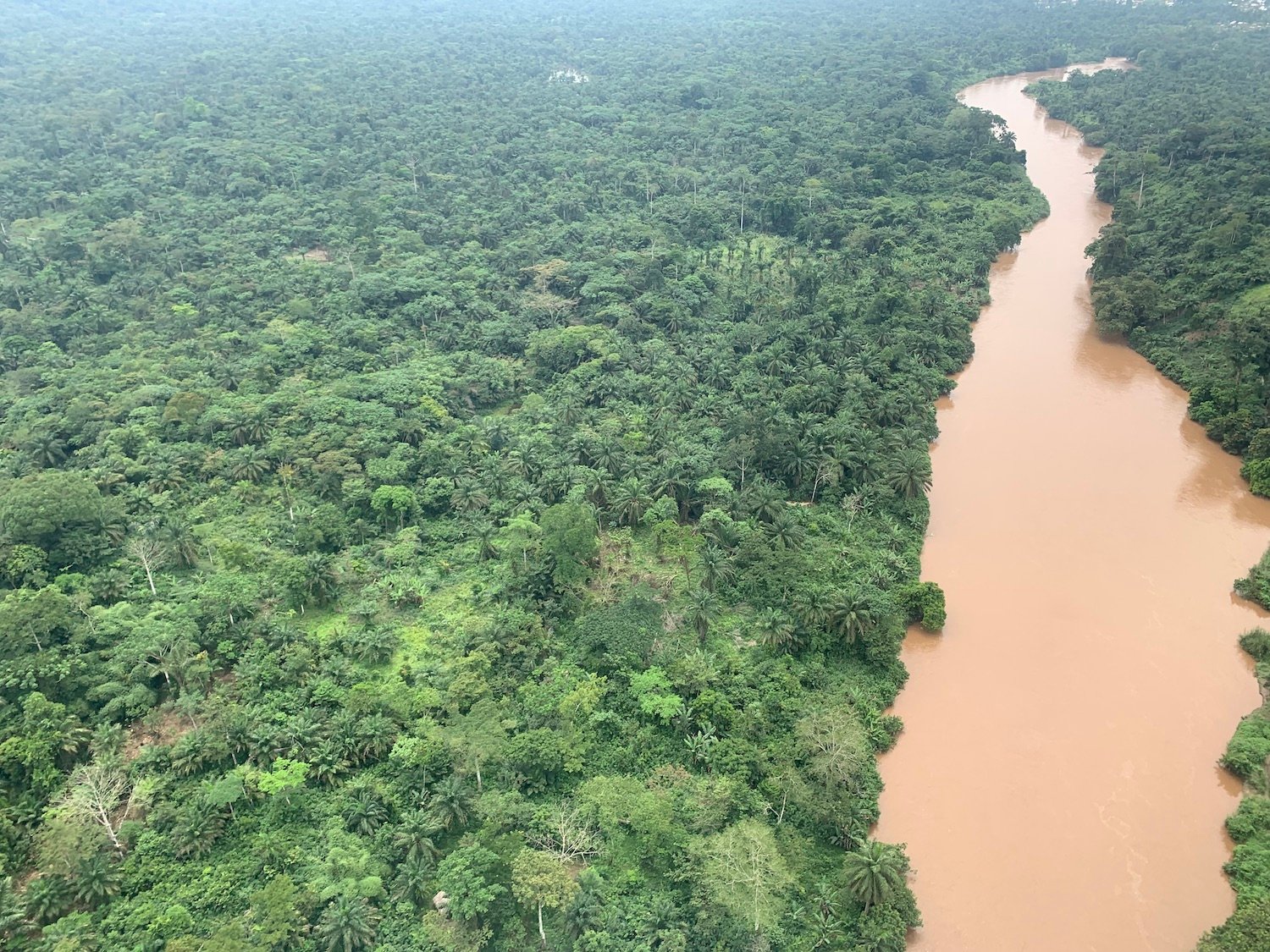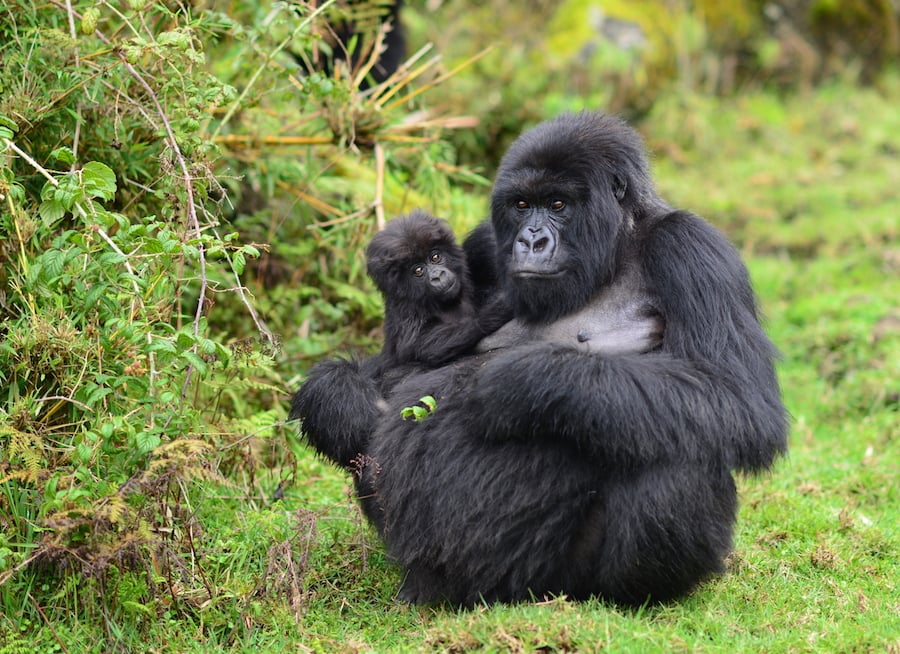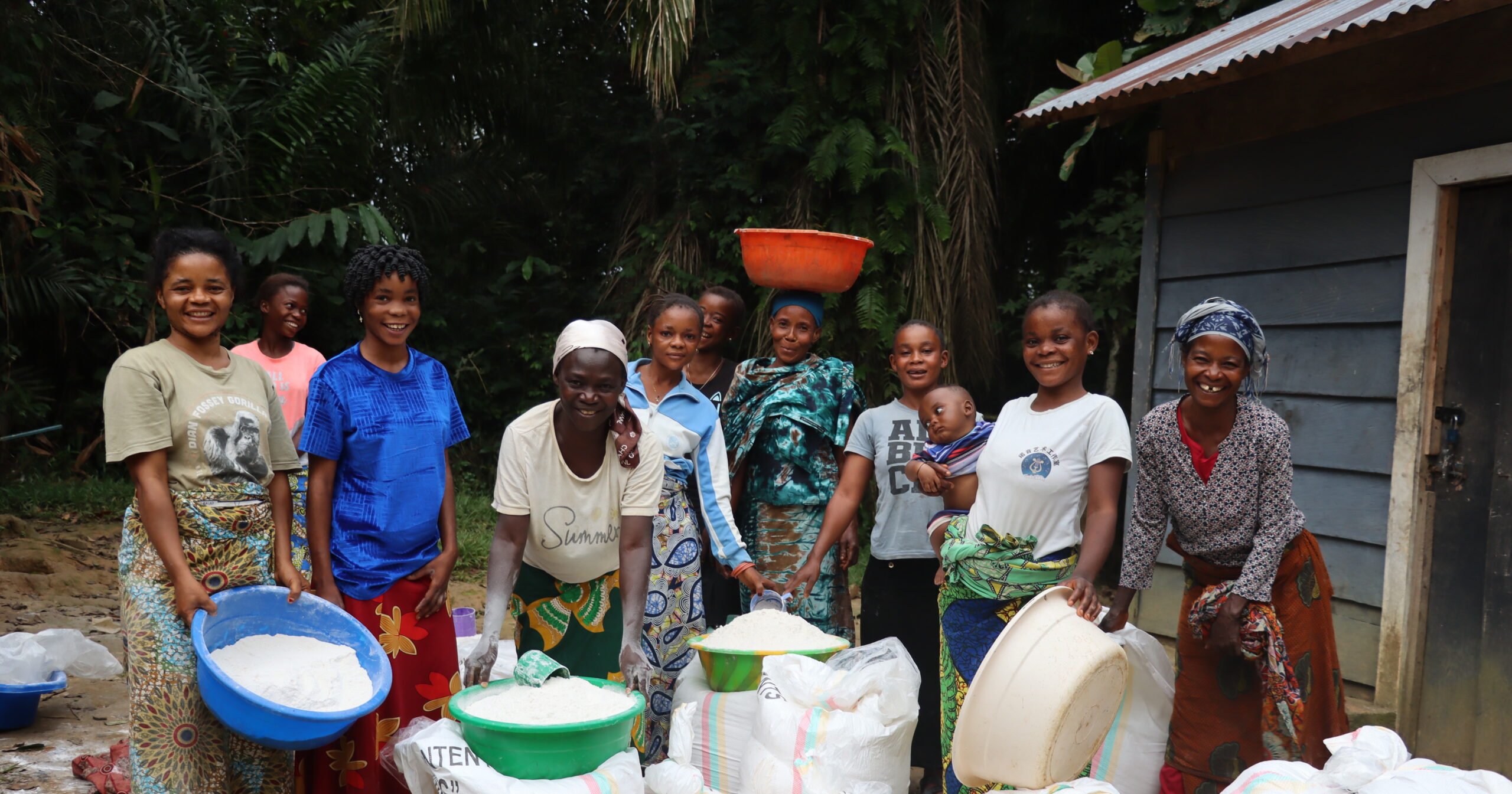June 26, 2013
Improving Community Health in Bisate: Emory Students Continue Fossey Fund Collaboration
 In 2011, Christine Moe, Ph.D., from Emory University and Dian Fossey Gorilla Fund International staff came up with the idea for a collaboration between the Fossey Fund and Emory’s Global Health Institute, with the goals of trying to reduce disease transmission between humans and gorillas as well as to improve the health and wellbeing of those living near Volcanoes National Park, which is an important element of gorilla protection. Last summer, one student from Emory, Suraja Raj, came to the Fossey Fund’s Karisoke Research Center as the first step in the long-term collaborative project.
In 2011, Christine Moe, Ph.D., from Emory University and Dian Fossey Gorilla Fund International staff came up with the idea for a collaboration between the Fossey Fund and Emory’s Global Health Institute, with the goals of trying to reduce disease transmission between humans and gorillas as well as to improve the health and wellbeing of those living near Volcanoes National Park, which is an important element of gorilla protection. Last summer, one student from Emory, Suraja Raj, came to the Fossey Fund’s Karisoke Research Center as the first step in the long-term collaborative project.
During her-two month stay, Raj was able to determine what the next steps for the project should be and begin to figure out how to reach its goals. To continue the collaboration, six more students from Emory came to Karisoke this May. Based on Raj’s work and with the guidance of Dr. Moe, the students have expanded their research areas in order to provide a complete, comprehensive and current baseline analysis of overall health and life in Bisate Village, the community closest to the park. The main areas the students are covering are water and sanitation, parasitic diseases, health services and access, and economics and livelihood.
In order to cover such a wide range of issues, the six students are of multidisciplinary background: Aaron Druck is a Master of Science candidate and nursing student from Emory’s Nell Hodgson Woodruff School of Nursing; Jade Carboy is in the Bachelor of Science in Nursing program at the same school; David Brendes is a doctoral student of environmental health science at Emory’s Rollins School of Public Health; Anita Kambhampati is in the Master of Public Health in Infectious Diseases program at the Rollins School; Anna Hajduk is in the Master of Development Practice program at Emory’s Laney Graduate School; and Deema Elchoufi majors in environmental studies at Emory’s undergraduate school.
The students are employing a variety of research methods, including conducting key informant interviews, household surveys, focus groups and water testing. They have hired several local translators and note takers to help with language barriers. The team leader, David Brendes, says “the work we are doing here this summer is really the first step in this long-term project; our work is comprehensive but still has specific focuses in order for the Fossey Fund and Emory to know how to best help the people in Bisate.”
Ildephonse Munyarugerero, Karisoke’s Ecosystem Health and Community Development program manager, who has been working with the students on their project since February, believes they are making great progress so far. “Each student is essentially doing their own study, on their area of expertise. When we combine what all of the students have worked on we will have a complete picture of life, livelihood and health in Bisate,” he says.
One of the many exciting facets of the project is that one of the students, Aaron Druck, who will be completing his Master of Science degree in January, has also received a Rwandan nursing license, both to enhance the health aspect of the project and to understand the disease and injury burden at the Bisate clinic by directly observing patient interactions. “I’m never surprised by the level of care provided for patients by compassionate people,” Druck says about his experience working at the clinic. “I’m very impressed with the staff at the Bisate clinic and the community health workers, as well as the way Rwandans treat each other in general.”
The current work is scheduled to be completed by the end of July. The baseline data and analysis established by the students’ work will provide information and insight for a better understanding of life for people in Bisate. Identification of the baseline conditions for health, water, sanitation, agriculture and economics of people in Bisate will allow future projects to more effectively create positive changes, as well as to measure that progress.
Karisoke Director Felix Ndagijimana is looking forward to using the information this study will offer. “Understanding the parameters that affect the population that lives next to the park is a very important part of protecting gorillas. With the information the study will provide we will be able to make better informed decisions in our Ecosystem Health programs and in helping the community more effectively in general,” he explains.






